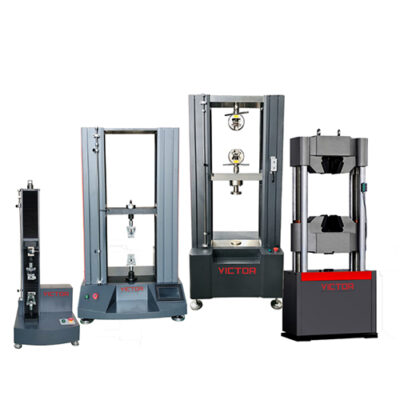A Universal Testing Machine (UTM) is a mechanical device used to perform a variety of tests on different types of materials, components, and structures.
It is widely used in the engineering and manufacturing industries to test the strength, elasticity, and other properties of materials such as metals, plastics, rubber, wood, ceramics, and composites.
The tensile testing machine is a very versatile testing equipment. It is suitable for testing various physical and mechanical properties of plastic sheets, pipes, profiles, plastic films and rubber, wire and cable.
It is an indispensable testing equipment for material development, physical property testing, teaching research, and quality control.
Universal Testing Machine (UTMs) are reliable workhorses—they can run hundreds of tests each day, seven days a week, sustaining the energy from test specimens breaking at loads up to 5 kN, 50 kN, even 600 kN and beyond.
However, just like a real workhorse with years or decades of service, they will eventually get old, wear down, and not be as reliable or perform as well as newer alternatives
The tension machine fixture is an important part of the instrument. Different materials require different fixtures, which is also an important factor for the smooth progress of the test and the accuracy of the test results.
More : https://byjusexamprep.com/testing-of-materials-with-universal-testing-machine-notes-i
Pros
- Retain much of your original investment: frame, load cells, accessories
- Can cost less than a new testing system
- Is considered a maintenance budget item instead of capital equipment in some organizations
Cons
- May not cost significantly less than a new testing system particularly for smaller single column or table model frames
- May not cost significantly less than a new system once service labor becomes a factor
- May not replace every possible part at risk of failure; remaining parts may be very costly or cost-prohibitive to replace if they do fail
Check out our other blogs:
-
ASTM D695 Test Standard
-
ASTM D5035 Breaking Strength and Elongation of Textile Fabrics
-
ISO 6892-1 Metallic Materials Tensile Testing

